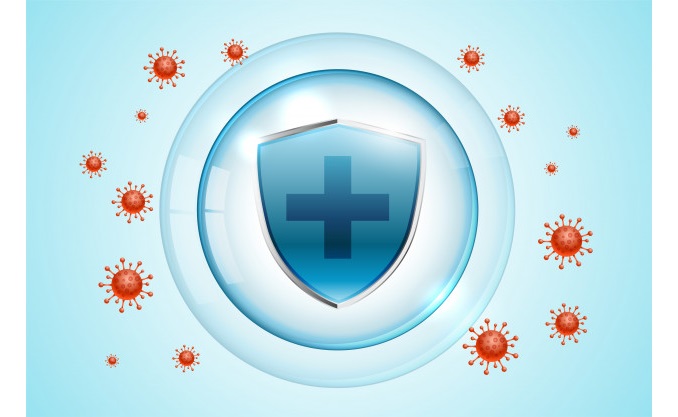
The phenomenon of immunological memory in relation to SARS-CoV-2 as a prospect for use of TFX medication
Results of the newest research published in the scientific journal Science indicate, that organisms of individuals who have recovered from SARS-CoV-2 infection are characterised by immunological memory that was found to persist eight months later. Scientists were initially worried that with specific antibodies disappearing from our organisms we would lose the protection from subsequent infections. Fortunately our immune system does not rely solely on antibodies. Specific roles played by two types of white blood cells are key to long term immunity. Those cells are lymphocytes B, able to differentiate into cells that produce antibodies and lymphocytes T, which not only identify and destroy infected cells but also remain in the organism after recovering from the illness. Comprehensive understanding of immunological memory requires assessing its diverse components, including T CD4 T CD8 cells, because they exhibit relatively independent kinetics of immunological memory.
Sufficient lymphocyte levels are key to immunity
It has been shown that nearly 90 % of patients exhibit a sufficiently strong immune reaction to SARS-CoV-2. The amount of produced antibodies, lymphocytes B and T indicates, that they can protect from subsequent infection. However, alarmingly, remaining 10 % of tested blood samples have found either absence of one of the cell types or their insufficient levels. This carries a danger that low levels of the cells responsible for organism’s protection may leave it susceptible to re-infection. Patients that had a mild course of COVID-19 have been found to have every type of immune cells. However in those that had to be hospitalized due to the illness at most only one type of immune cells has been detected.
TFX increases lymphocyte numbers and vitality
Immunological memory, originating from initial infection or immunisation, is the source of immunity against subsequent infection. Development of vaccines and potential future course of the COVID-19 pandemic depends directly this phenomenon. Presence of immune cells has been confirmed in individuals who have recovered from the illness even eight months after infection. Despite the optimistic conclusions coming from the research, currently it cannot be ascertained for how long the people who have recovered or been vaccinated will maintain immunity against re-infection. This is where an opportunity for therapeutic use of thymosins, that is thymus hormones comprising the original Polish drug TFX (Thymostimulinum), presents itself. Thymus hormones as immunomodulatory factors cause an increase in lymphocyte levels which imparts better response to vaccination.
Thymosins improve the efficacy of immunisation
In clinical trials after 30-day therapy using TFX, an increase of all lymphocytes of interest has been measured. The number of lymphocytes B as well as lymphocytes T rose significantly, and what is most import, remained elevated for a long time after the therapy has concluded. An increase of cell count has been observed mostly among the lymphocyte subpopulations key for immunological memory: CD4 and CD8. Worth underlining is the fact, that a follow-up study carried out 8-12 months after the therapy has been completed has found that the lymphocyte count was still significantly higher when compared to pre-therapy levels. Among different fractions of thymus peptides interesting data has been collected for thymosin α1. It has been proven, that it can improve the response to vaccinations through simultaneous stimulation of dendritic cells and lymphocytes T, which leads to increase in production of antibodies together with improved cytotoxic response of the lymphocytes T themselves. Research focusing on influence of thymosin α1 on influenza and hepatitis B vaccines was conducted on a group of elderly patients, who did not show a response to vaccinations. Administration of thymosin resulted in significantly more efficient immunisation compared to the placebo group and higher stability of the vaccination effect over time. What is interesting, the difference in favour of the thymosin therapy increased significantly with the age of participants (above 77 years old). Despite earlier trials conducted only with influenza and hepatitis B vaccines, the same biological effect is expected with other types of vaccines.
